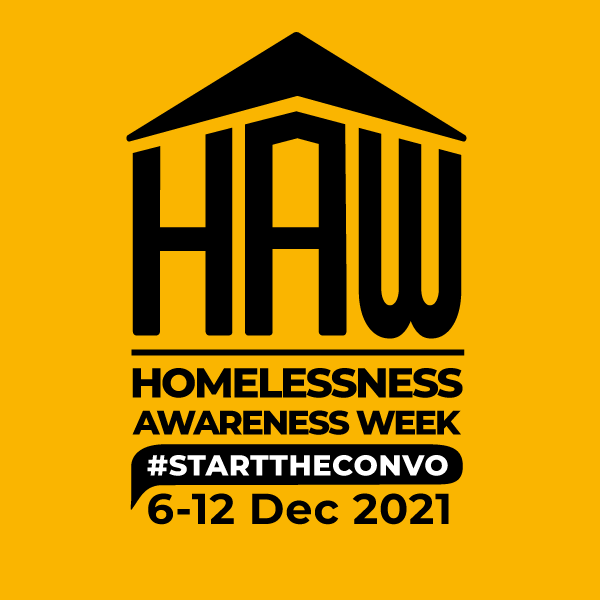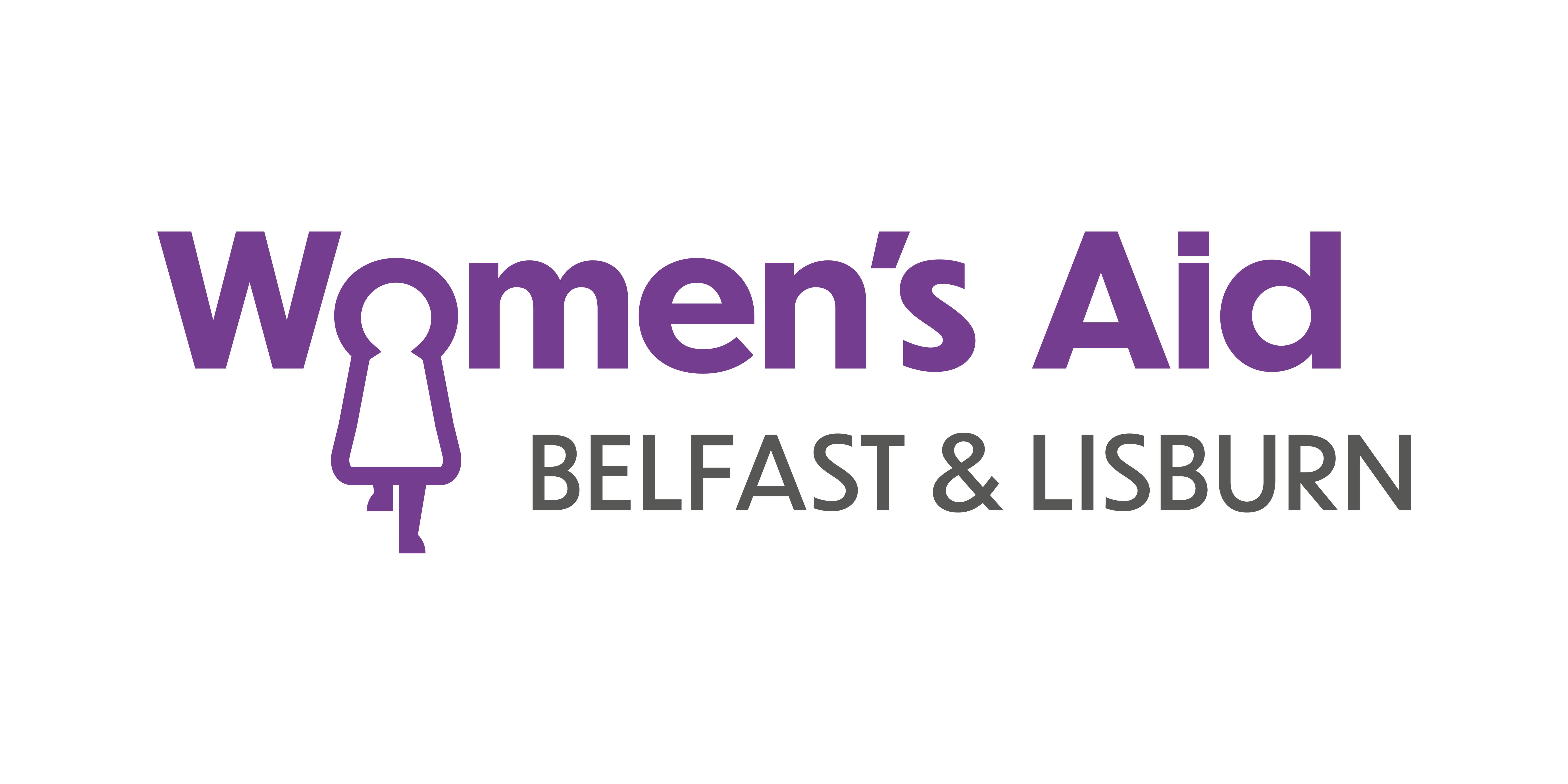Homelessness Awareness Week Northern Ireland begins today, Monday 6th December 2021…
Homelessness and domestic abuse are intrinsically linked; when a woman leaves an abusive relationship, she often has nowhere to go. This is particularly true of women with few resources. Lack of affordable housing and long waiting lists for social housing mean that many women and their children are forced to choose between abuse at home or life on the streets.
That’s why this week, we’re joining Homeless Connect to #StartTheConvo to highlight the work being carried out by the homelessness sector and create awareness of the challenges being faced by people living with homelessness.

Homelessness and domestic abuse
The relationship between domestic abuse and homelessness is complex, as it’s often underpinned by a range of factors such as gender inequality, socioeconomic disadvantage, mental ill health as well as poor access to income support and housing. Although domestic abuse occurs in same-sex relationships and happens to men too, the overwhelming number of victims are women (at the hands of a male partner/family member). For some women they come to refuge for safety, because a dangerous perpetrator may know where else she may turn to for shelter, such as friends or family members.
Do all women experiencing abuse face homelessness?
No, not all women who experience domestic abuse will become homeless. Some have greater access to financial and social resources, such as income and housing. Women who have fewer of these resources are more likely to need help from Women’s Aid refuges or other homelessness services, demonstrating how homelessness caused by domestic abuse is also underpinned by other issues such as poverty.
Many women experiencing domestic abuse will have to get help from Women’s Aid or homelessness services because they lack the financial resources needed to secure housing. For example, a controlling partner may have withheld their partner’s access to finances and/or not allow her to work, therefore limiting her ability to secure an income.
Sometimes a woman may not have a credit history or bad credit which makes it harder to rent, and in other cases women have to leave quickly and simply don’t have time to prepare. Many women who experience domestic abuse are not ‘houseless’ – they have houses, but they can’t be safe in them because the perpetrator lives there too.
Crisis accommodation not a housing solution
In Belfast and Lisburn Women’s Aid most women stay in refuge for 4-6 days, followed by 1-2 weeks as the next highest length of stay. However, we do have some women and children who are in our refuge for over six months. This is due to lack of available social housing or women being unable to access the private rental market. Our refuge services are for crisis accommodation – they are not a housing solution.
Our services need investment. Our refuges often have full occupancies, and a heavy turnover of women and children through the service. Women and children who are accessing the service often have complex needs and we must have appropriate facilities and staff to support these vulnerable people.
Unfortunately we live in a society were crisis domestic abuse accommodation is needed, and this isn’t changing any time soon. We must listen to women when they say they are fearful for their life. The consequences are too great not to.
We’re joining in and helping #StartTheConvo over on our social media channels. Make sure you follow us to keep up to date.
Follow us on Instagram, Facebook and Twitter.


Show all posts
